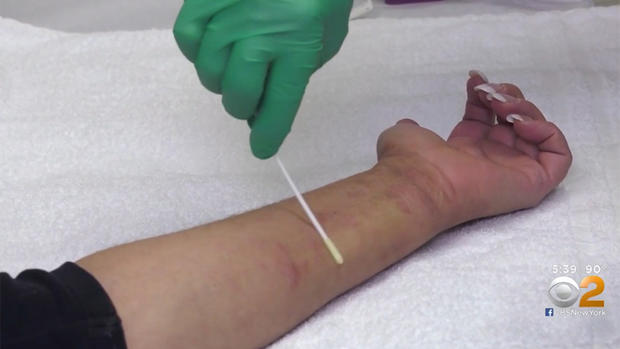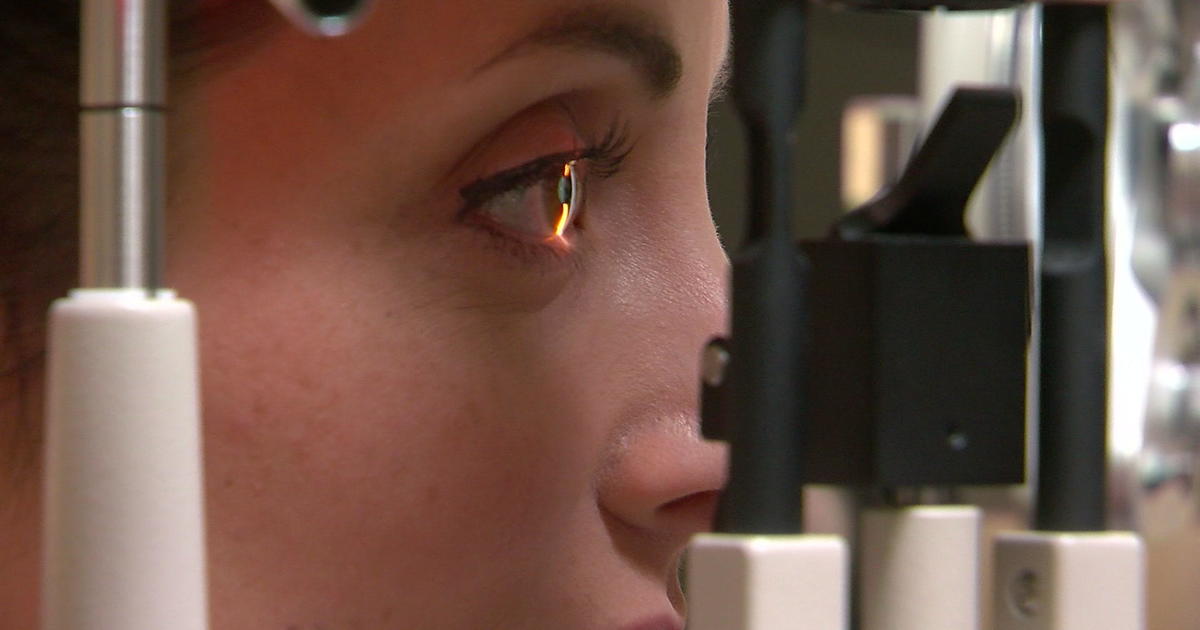Caring For Skin May Be Key To Stopping Food Allergies
PITTSBURGH (CBS) -- New research says soaking and moisturizing could help prevent everything from asthma to food allergies.
Surprisingly, eczema has a common link with those other allergic conditions.
Millions of babies develop the dry, itchy skin rash, and doctors now know that eczema puts babies at high risk for also developing food allergies.
Ava Segur developed eczema when she was just a few weeks old.
"We were trying to get that under control," said Stephanie Segur, Ava's mom. "Then, all of a sudden, she got these food allergies at the same time, around 18-months-old."
It wasn't a coincidence. Her allergies actually started with the dry, cracked skin caused by eczema.
"Probably a third of patients with eczema develop a food allergy," said Dr. Donald Leung of National Jewish Health.
Dr. Leung has been tracking the link between these conditions through his research. It's known as the Atopic March, a sequence of allergic diseases that starts in infancy with eczema, and often progresses to food allergies, asthma and hay fever.
"I never really thought of it that way, that they would ever be connected," said Ava Segur. "But now that I look back at it, I'm kind of like, 'Oh, I see how that can make sense.'"
"These people have dry, cracked skin, which allows allergens from the environment to penetrate through," said Leung.
When food particles enter through the skin rather than the digestive system, they are more likely to trigger allergies, so the key to allergy prevention is early skin care.
- For more information on this story, visit CBS New York at the this link.
"What we need to do is rebuild the skin barrier," said Dr. Leung.
To do this, experts recommend what they call "soak and seal," which starts with a warm 20-minute bath, followed by moisturizing ointment.
"That will create a film of water that then, if you put a sealant over it, that will trap the moisture from evaporating," said Leung.
This heals more than the skin, it can stop the Atopic March in its tracks.
"I can't even explain to you the relief that we've really gotten from it," Kriston Kline, the mother to a baby eczema patient. "If we could try this now, and we could prevent those food allergies, that's huge."
So, how is a baby getting food particles on its skin? Have you ever seen a baby eat? Food is all over them.
That's where immune cells in the skin called dendritic cells, pick up food proteins.
The trouble is a baby's immature immune system doesn't know how to handle that and turns into allergies.




